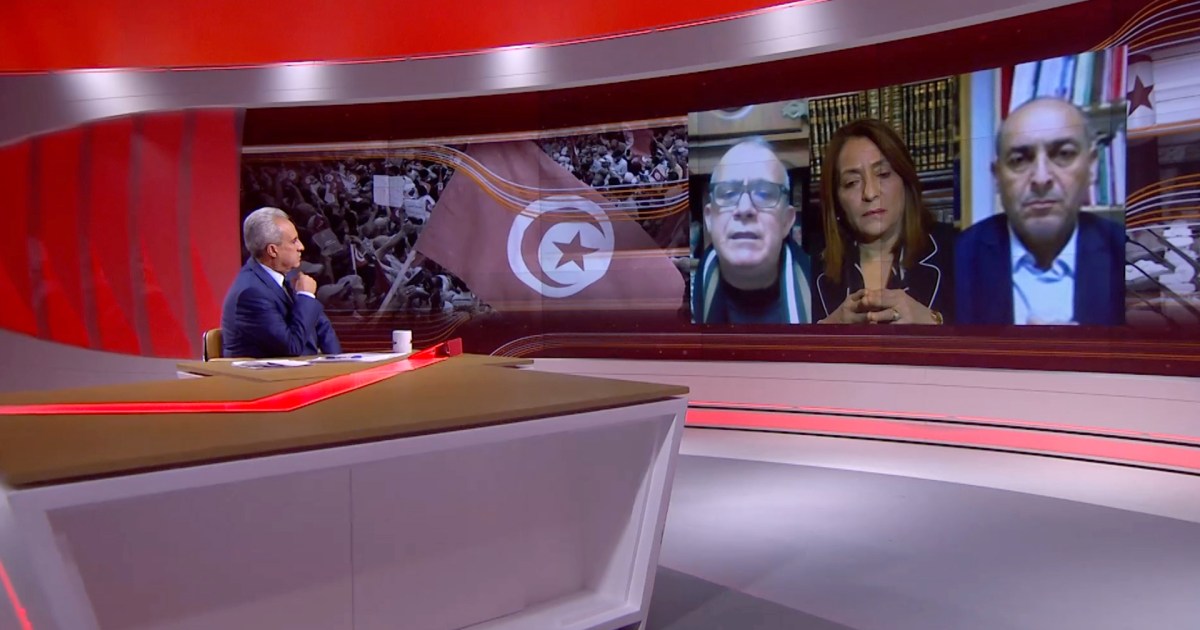While she praised the Supreme Judicial Council, and said that it had proven that it was entrusted with independence, Al-Qarafi did not rule out that Saeed would resort to dissolving the Council by force, because his behavior after exceptional measures requires sweeping institutions whenever he finds a void in front of him, and because he seeks to make the judiciary subordinate to him in order to dominate and use society against his opponents.
In her speech to an episode of the "Scenarios" program (01/2022) - the Tunisian judge revealed attacks and threats against the judiciary and the Supreme Judicial Council, warning against harming the judiciary in the absence of the legislative authority.
While supporting the principle of judicial reform, Al-Qarafi indicated that the president is required to activate the supervisory authorities, if he wants to achieve results.
Amidst fears that President Said will take control of the judiciary after seizing executive and legislative powers, judges in Tunisia continue to warn of the dangers of this approach, calling for the judicial institution to be neutralized from political squabbles, and reminding that there is no democracy in the world without an independent judiciary.
For his part, Professor of Public Law at the Tunisian University, Abdel Razzaq Al-Mukhtar, said that President Saeed, after taking control of the executive authority and neutralizing the legislative authority, is trying to tighten his grip on the judicial authority, and he is trying to bring the judiciary to its knees by promoting the rhetoric of purifying this apparatus.
According to the Tunisian guest, Saeed is usually exposed to the judiciary in his weekly speeches and meetings with the Council of Ministers, where he uses a speech that pressures the judiciary and throws all the whites into one authority, meaning that he accuses all the judiciary.
Regarding how to confront the president’s attempt to control the judiciary, Abdel Razzaq Al-Mukhtar explained that the judicial issue is part of the general framework in which Tunisia is experiencing, and therefore the bet is on civil, political and democratic forces to protect the independence of the judiciary.
The public law professor added that reform is an important issue, but how and when does it happen?
Judgment, the speaker answers.
This requires calm, the return of the situation to normal and the return of constitutional legitimacy. A major political settlement is required to get out of the current situation.
Reforming the judiciary does not mean undermining its independence
On the other hand, a professor of constitutional law at the Tunisian University, Rabeh Al-Kharaifi, stressed that talking about judicial reform does not mean undermining its independence, but judges who have judicial files - corruption or bribery - should not be kept in the judiciary.
He considered that the president had great political courage, because he opened the file of the judiciary in Tunisia.
According to Al-Kharaifi, the Supreme Judicial Council has turned into an arena of conflict between judges, which has paralyzed its performance, wondering about the vision and projects of this council for six years.
Regarding the scenarios of confrontation between the president and the judiciary, the constitutional law professor stressed the need to stop impunity and combat corruption, and said that the president’s call for judicial reform has prompted and awakened judges, and that the judiciary must be sought by the litigant.
As for Mr. Abdul Razzaq Al-Mukhtar, he expressed his optimism about the democratic front that unites honorable judges, civil society and political parties that adhere to the values of democracy, the protection of the 2014 constitution, and the establishment of a democratic state and a democratic society.
While the Tunisian judge expressed her optimism about the future of the Tunisian judiciary, saying that she personally struggled and stood against the most powerful tyrannical regimes to defend the independence of the judiciary.

